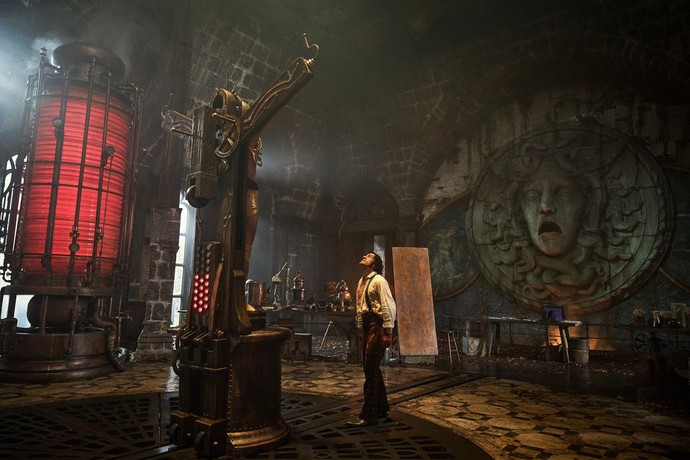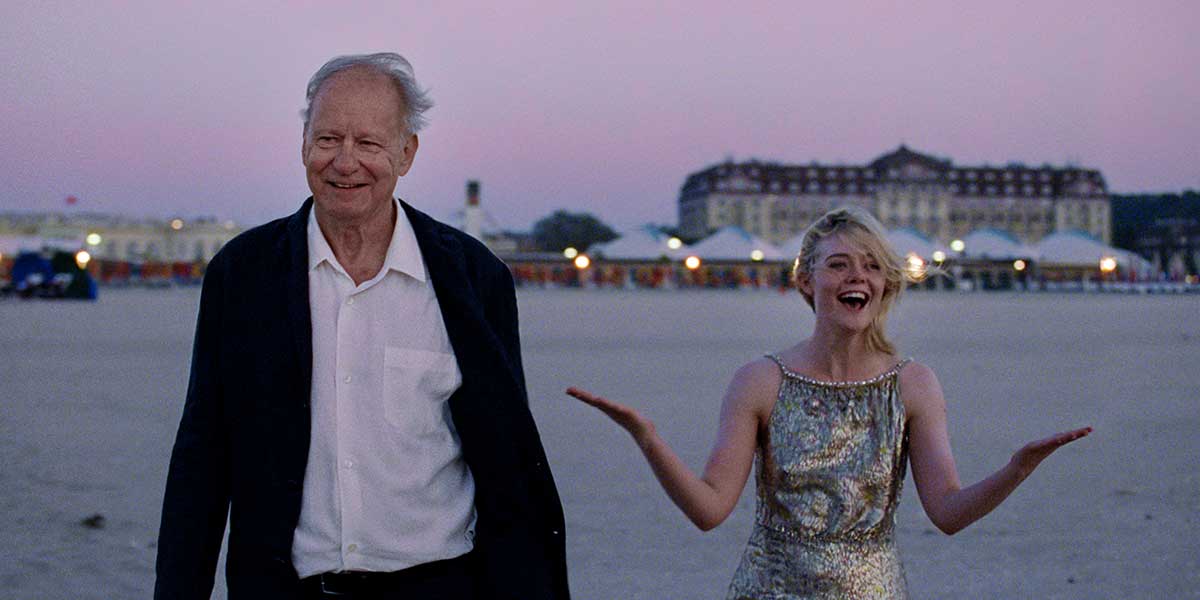Frankenstein, dir. Guillermo Del Toro
Guillermo Del Toro returned to TIFF, fresh from receiving his key to the city, with his take on Mary Shelley’s classic novel Frankenstein, starring Jacob Elordi, Oscar Isaac, Christoph Waltz, and Mia Goth. In the decades-long journey to adapt this story of which Del Toro is so fond, he has created a veritable pantheon of iconic movie monsters in his wake, leaving many excited to see his attempt at depicting perhaps the most iconic movie monster in history.

While I cannot speak to Frankenstein’s book-accuracy, the film crafts a very lush and rich story, filled with atmospheric Gothic sets, ornate costumes, and exquisite monstrosity in its makeup, puppets, and visual effects. Despite the film’s ultimate trajectory as a Netflix Original landing it a place in the streaming platform’s catalogue, it begs to be watched in a theatre, due to its visual grandiosity and epic structure. One still notices the “Netflix sheen” from this film, no matter how auteur-driven it is; this quality is characterized by noticeable CGI effects, muddy or dim visuals, and a general flattening effect on the image. While these issues were not present for the entirety of Frankenstein, they would frequently stick out and elicit the feeling of a TV production.
The performances, on the other hand, hold the gravitas that befits a film of this scale. Jacob Elordi, whose turn as the monster is as beautiful and delicate as it is menacing and brutish, was the clear standout. He embodies the pathos of being misunderstood in a way that is often lacking in adaptations of this source material, but is a prevalent theme throughout Del Toro’s other works about monsters. The rest of the cast inhabit their characters with gusto, but Elordi manages to hijack the viewer’s attention whenever he is onscreen. While Frankenstein has the markings of some of Del Toro’s best films, it almost feels like a retread of themes and visuals better explored in his previous works. Still — I recommend!
Sentimental Value, dir. Joachim Trier
When their estranged filmmaker father (Stellan Skarsgård) returns home with a movie idea, sisters Nora (Renate Reinsve) and Agnes (Inga Ibsdotter Lilleaas) must reconsider their rocky relationship with him and determine the level of involvement they will take in his new project.
Director Joachim Trier, whose previous film, The Worst Person in the World (2021), received critical acclaim and two Academy Award nominations, returns with, in my opinion, an even more refined piece. Trier utilizes a clean shooting style with mostly handheld but hardly ever shaky shots, which lends Sentimental Value a feeling of controlled chaos that complements the film’s screenplay and performances. The relationship between Nora and her father, Gustav, is incredibly moving and sits firmly at the core of the film, bolstered by two award-worthy performances.

Reinsve in particular delivers something electric in this role, tapping into a universal sense of anxiety and abandonment, while keeping Nora’s character firmly individual and personable despite her flaws. Each element of this film comes together rewardingly, with strong themes of rootedness, family, and self-actualization, alongside visual motifs of artifice set against stark realism.
In contrast, Elle Fanning’s inclusion in the film as American actress Rachel Kemp, who is given the lead role in Gustav’s movie, feels somewhat out of place from a performance perspective. Narratively, Rachel serves as a connection point between Scandinavia and the rest of the world, with the power of her name providing legitimacy to this otherwise very personal and very proudly Norwegian production. Performance-wise, however, Fanning never seems to fit well into this very naturalistic world. Her persona — always the bubbly and determined ingénue — feels more put-on than ever when compared to her peers.
Perhaps Trier could argue that Fanning’s performance is meant to highlight the aforementioned dichotomy of embellishment and reality, but I felt that she detracted overall from an otherwise very well-constructed film. Despite this minor misgiving, the film is highly recommended!




